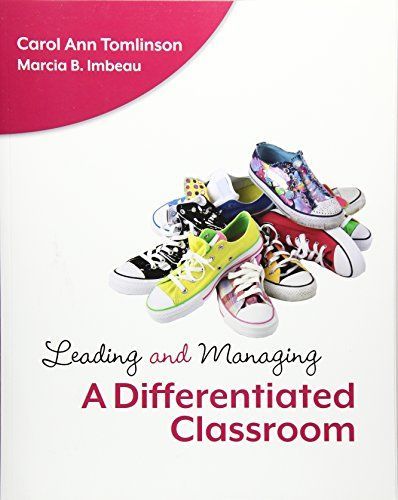
Leading and Managing a Differentiated Classroom
Today’s teachers are responsible for a greater variety of learners with a greater diversity of needs than ever before. When you add in the ever-changing dynamics of technology and current events, the complexity of both students’ and teachers’ lives grows exponentially. Far too few teachers, however, successfully teach the whole class with the individual student in mind. In Leading and Managing a Differentiated Classroom, Carol Ann Tomlinson and Marcia B. Imbeau tackle the issue of how to address student differences thoughtfully and proactively. The first half of the book focuses on what it means for a teacher to effectively lead a differentiated classroom. Readers will learn how to be more confident and effective leaders for and in student-focused and responsive classrooms. The second half of the book focuses on the mechanics of managing a differentiated classroom. A teacher who has the best intentions, a dynamic curriculum, and plans for differentiation cannot—and will not—move forward unless he or she is at ease with translating those ideas into classroom practice. In other words, teachers who are uncomfortable with flexible classroom management will not differentiate instruction, even if they understand it, accept the need for it, and can plan for it. Tomlinson and Imbeau argue that the inherent interdependence of leading and managing a differentiated classroom is at the very heart of 21st-century education. This essential guide to differentiation also includes a helpful teacher’s toolkit of activities and teaching strategies that will help any teacher expand his or her capacity to make room for and work tirelessly on behalf of every student.